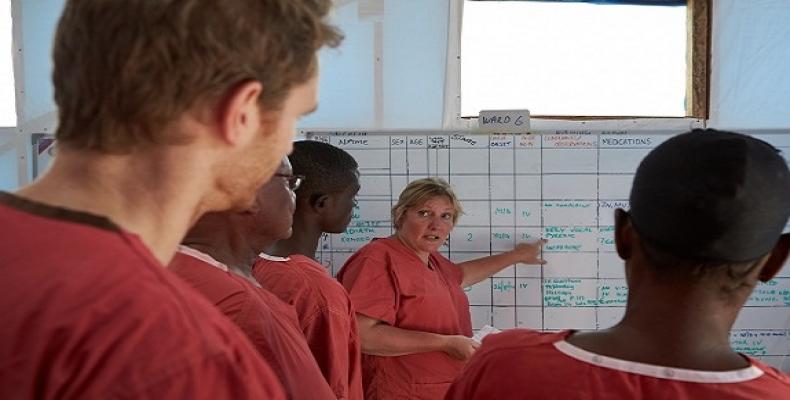Geneva, April 08 (RHC) WHO's new registration system will enable it to build a global roster of foreign medical response teams ready to deploy for emergencies, says the World Health Organization.
The Global Foreign Medical Teams Registry sets minimum standards for international health workers and allows teams to clearly outline their services and skills. This facilitates a more effective response and better coordination between aid providers and recipients.
“Thanks to the system we have developed, the international response to the cyclone in Vanuatu has been very fast and efficient,” says Dr Ian Norton, who leads the work on foreign medical teams at WHO.
“We supported the Ministry of Health to ensure that every foreign medical team that arrived in Vanuatu was registered in the system and had the right training and equipment. This meant that teams have been able to provide care quickly and effectively to the people most in need.”
Medical teams respond to the cyclone in Vanuatu
The first medical team arrived from Australia to support the local health workers just 2 days after the cyclone hit. Since then, 20 teams (including more than 50 doctors, 40 nurses, 24 paramedics and 12 midwives) have provided assistance. New teams continue to arrive (some by boat) to fill positions as other teams return to their home countries.
In previous responses including the Haiti earthquake and the South Asia tsunami, some foreign teams arrived without informing the national health authorities or coordinating with other international responders. Although they had good intentions, sometimes these people lacked appropriate skills and local knowledge, were unfamiliar with the international response systems and standards, or brought inappropriate equipment that did not match the health needs of the people.
Strengthening emergency response through lessons learned
The standards developed by WHO build on lessons learned during previous emergency responses including the West African Ebola outbreak, for which WHO coordinated the deployment of nearly 60 foreign medical teams provided by 40 organizations. It was the first time that foreign medical teams were deployed during an outbreak.
Ebola care during this multi-country outbreak has called for unique medical knowledge and equipment, and has carried risks for health workers. The progress that has been made against Ebola is in part due to the response by the national and international teams working together in 72 Ebola treatment centers across 3 countries.
“WHO’s work to improve the global response to emergencies has benefits for all countries. It is helping to build the skills and capacities of national teams to respond to their own emergencies and eventually be better able to help other countries,” says Dr Norton.
WHO is developing best practice guidelines and standards for teams to respond to specific needs including care of children, pregnant women, patients with disabilities and older people.


